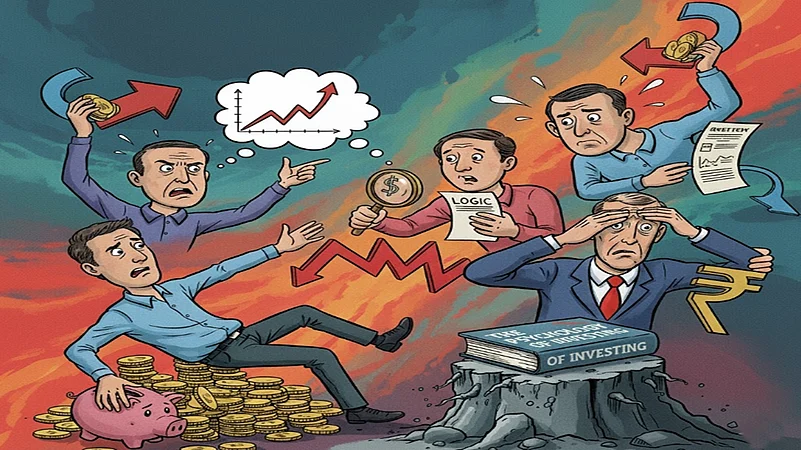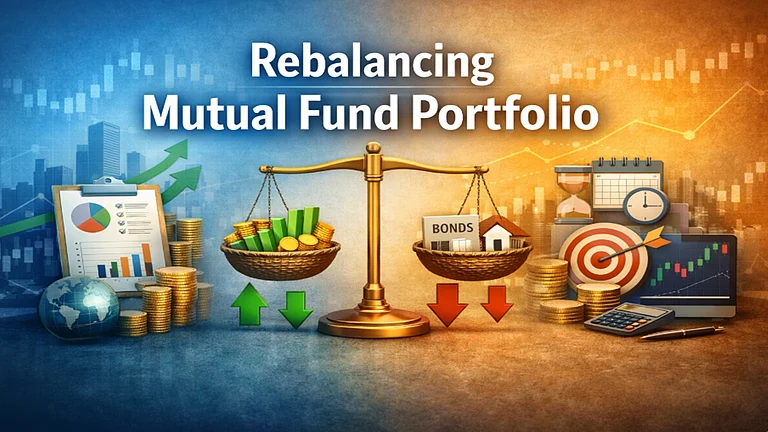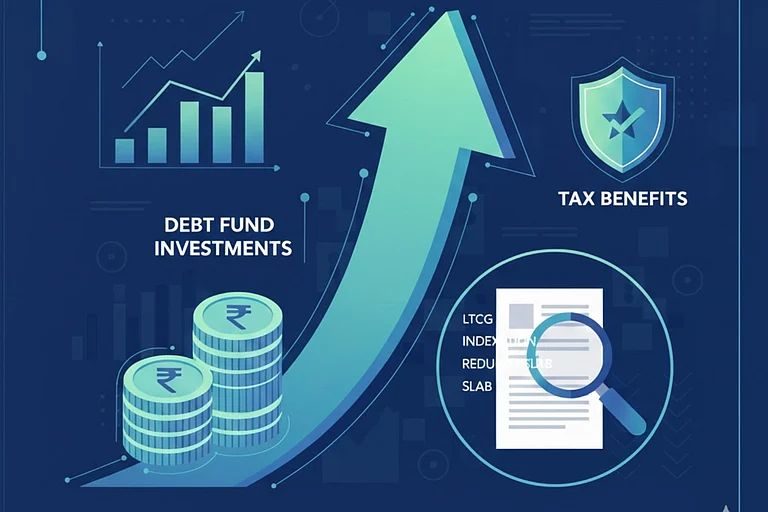
Summary of this article
Despite rising financial literacy, many investors still fall prey to herd mentality, FOMO, and impulsive decisions. Data shows that emotional reactions — not poor strategy — often derail investment success. The key to lasting wealth, experts say, is emotional discipline: automating good habits, staying invested, and letting logic win over impulse.
The WhatsApp message arrived at 11:47 PM: “Confirmed tip. XYZ stock is doubling in two weeks. Get in now!”
He knew better — he’d read the books, attended webinars, and set up SIPs six months ago. Yet by 11:52 PM, he was researching the stock. By 9:16 AM the next morning, he’d invested Rs 50,000. Two weeks later, the stock was down 18 per cent. His SIPs? Up 4 per cent — steady and predictable. This isn’t a story about financial illiteracy. It’s about the gap between knowing what works and doing what works.
The Knowledge–Action Paradox
India’s investment awareness has never been higher. YouTube explains compounding, apps gamify SIPs, and social media celebrates long-term wealth creation. Yet, even informed investors struggle to stay disciplined.
They understand that time in the market beats timing the market, but the moment a friend flaunts high returns, that logic evaporates. The truth is simple: investing isn’t just a knowledge problem; it’s a psychological one.
Sanjiv Bajaj, Joint Chairman and Managing Director at Bajaj Capital, observes: “Two investors can hold identical portfolios, follow identical strategies, and receive identical advice, yet end up with dramatically different outcomes. The difference isn’t in what they know; it’s in how they manage what they feel.”
The Herd Instinct
For centuries, following the crowd kept humans safe. But in markets, the herd often runs toward the cliff. The most dangerous words in investing are “Everyone’s making money.” That’s precisely when investors abandon plans and chase trends.
History offers clear lessons. According to AMFI data, the mutual fund industry recorded massive sales of over Rs 5.14 lakh crore in January 2008 during the market boom, but ended the financial year 2008–09 with net outflows of Rs 30,432 crore, as the Sensex fell nearly 60 per cent from its January 2008 peak.
A similar pattern played out in early 2020, when equity-oriented mutual fund inflows surged to Rs 7,877 crore in January and Rs 10,796 crore in February, just before the COVID-led crash in March. Yet, investors who stayed invested saw markets rebound within months, while those who exited locked in their losses. This is as per the AMFI mutual fund data, and BSE Sensex historical data between 2008–2020 provided by Bajaj Capital.
FOMO: The Fear of Missing Out
FOMO might be the most expensive emotion in finance. It makes long-term investors abandon 20-year plans for two-week trading frenzies. The regret of missing a 500 per cent rally feels worse than losing 30 per cent of actual money.
Social media makes investing look like a game of quick wins. You’ll see posts shouting “Made Rs 2 lakh in a day!” but never the quiet confessions of “Lost Rs 5 lakhs over six months.” This creates a false sense of success and pushes many to act on impulse instead of insight.
The Axis Mutual Fund Risk Comprehension Survey (2023) captures this paradox well. Nearly 9 out of 10 investors say they understand the importance of knowing their risk appetite, yet only 1 in 4 actually consider it before investing. Even more tellingly, almost half of equity investors pull out their money within two years, with over 15 per cent exiting in just six months.
In short, most investors know the rules of long-term investing, but emotion often wins over reason. The real challenge, then, isn’t about beating the market. It’s about managing ourselves.
That’s where emotional discipline makes all the difference. The most successful investors don’t eliminate emotion; they plan around it. They automate their SIPs, follow predefined rebalancing rules, and check their portfolios quarterly, not daily. These small, steady systems keep emotions in check and allow wealth to do what it does best: grow quietly over time.
The Long Game
Behavioural finance doesn’t ask us to be emotionless, only aware. Awareness converts impulses into discipline. In the end, the investors who thrive aren’t necessarily smarter. They’re simply more self-managed. In investing, the real contest isn’t between you and the market; it’s between your logic and your emotion.
And when discipline wins that contest, wealth quietly compounds.














